Direct contact with nature through a school garden.

source
With the growing presence of technology in the daily lives of adolescents and young audiences, children have had less and less contact with nature, which not only affects the awareness of the need to preserve the environment, but also the human and social development of these. Projects such as the garden in the school have been the outlet to educational institutions concerned with rescuing this important relationship.
Children who do activities in the school garden improve academic, physical and mental performance compared to students who do not have that experience in the school environment.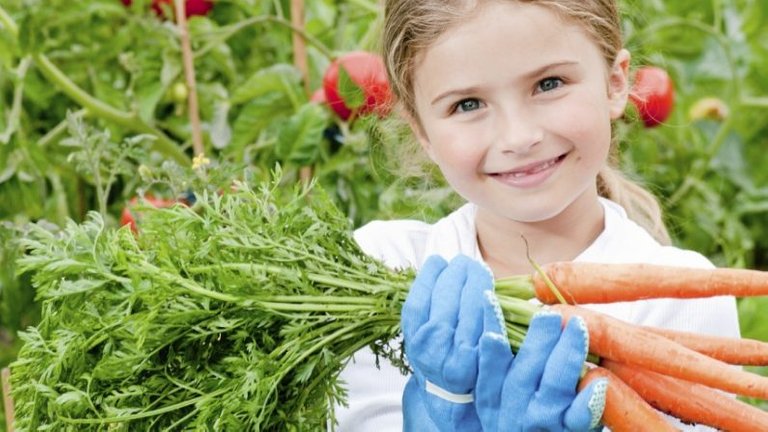
source
Offering spaces for cultivation within the nursery school bring students closer to nature, generating an important affectionate relationship with nature, to become aware of the importance of caring for plants and the environment in general. This proximity and affectivity with nature is the first step to the effective and permanent construction of sustainable habits.
Presents the origin of food
Knowing what is being consumed, what nutrients are necessary for growth and where food comes from is fundamental for children, who are beginning to form their habits.
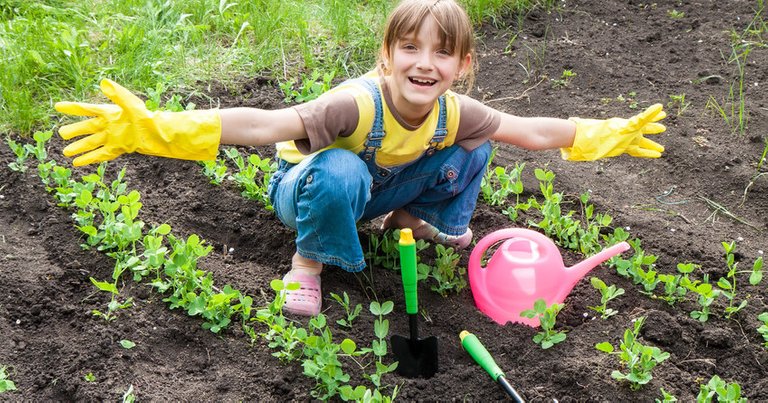
source
By placing their hands on the ground and planting fruits and vegetables at school, students become familiar with the food, understand what is done and how it can contribute to an adequate diet.
In this way, it is possible to instill in your child the habit of eating healthy from early on, helping him to distinguish the type of food that is good for those who do not provide health benefits.
Balances the use of electronics and contact with nature
Although it offers many benefits, the use of technology can also bring risks for children - such as isolation, emotional disturbances and the detachment of nature.

source
Having a space that stimulates contact with the environment in the teaching institution is essential to balance the use of electronics with knowledge about the ecosystem.
The first contact with nature is able to open doors to awaken the curiosity of the student on the subject, making him have more encouragement to participate in outdoor activities instead of staying all day connected to electronic devices.
Promotes the development
Helping to plant the seeds of vegetables or watering the plants in the garden are physical activities that help develop the psycho-motor of children.
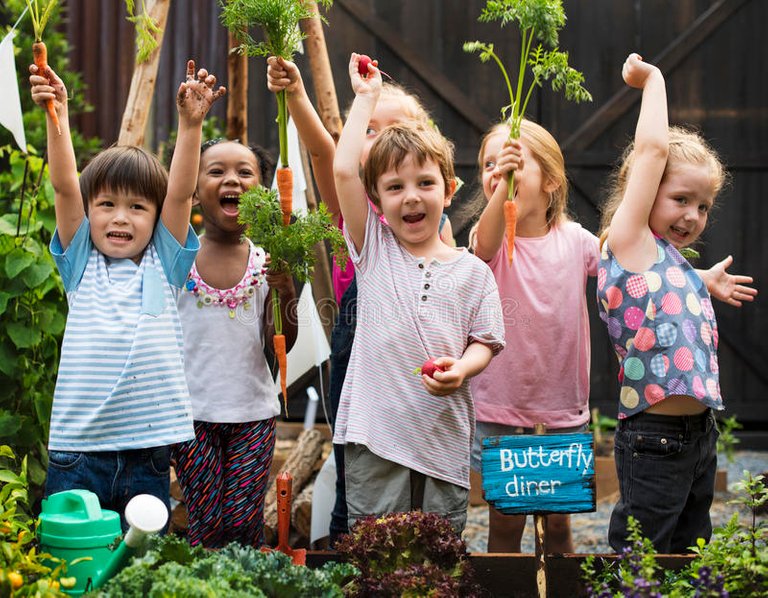
source
In addition, participating in the garden at school contributes to the improvement of cognitive and sensory-olfactory development, since students receive new knowledge about nature, touching, visualizing and eating what they plant.
Enables learning in practice
Absorbing theory in the classroom and putting knowledge into practice is crucial to enhance the learning process.
The garden at school can serve as a basis for learning the disciplines and their contents.
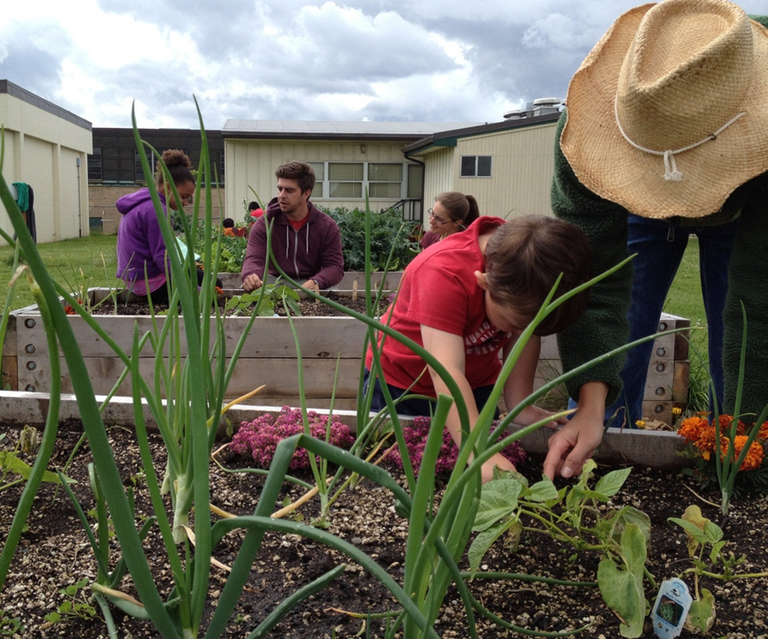
source
In science class, for example, students can follow closely how the birth and growth of plants occurs. Already in the teaching of mathematics, the teacher can work national economy through the use of planted food.
The cultivation of an orchard creates real and diversified learning situations, which allows broadening the insertion and discussions of the topics worked within the room. That is, by planting fruits and vegetables, children can also harvest knowledge that will be carried throughout life.
The incentive to take care of nature
One of the greatest benefits of the garden in preschool is to encourage, love and care for nature. The fact of planting, watching over the plants while they are growing and then harvesting and eating the fruit teaches the students that, when we take care of the environment with affection, he can give back positively.

source
The lessons learned from the educational institution go beyond the school environment and develop environmental awareness of children everywhere.
Participation of the family in the garden at the school.
Most of the Horta projects at the school include the participation of the parents and relatives of the students, which means to disseminate even more the learning acquired during the classes. Thus, children become multipliers, since they bring home what they learn in the school environment. In this way, the influence of the garden is not limited to the school.
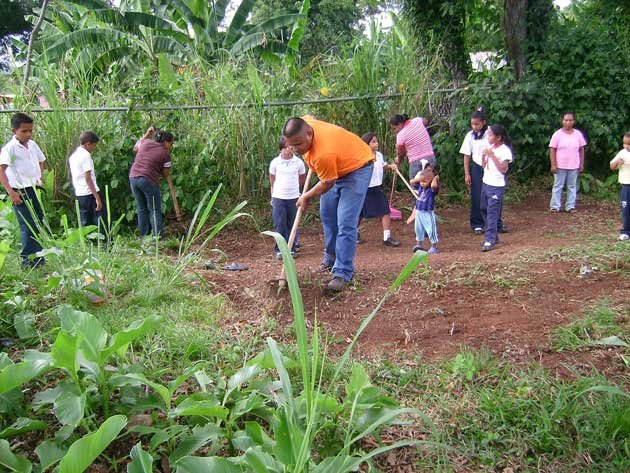
source
With the knowledge and influence of your child in wanting a better diet, the whole family can join in the construction of an orchard at home and guarantee quality meals for all. It stimulates teamwork from choosing the seeds to plant to harvesting mature foods, children make group decisions, working as a team in all stages of the garden cultivation.
This encouragement of working together helps in the socialization of students with their classmates, enabling them to learn to listen, discuss, exchange ideas and collaborate with others. A seemingly innocent activity such as gardening can prepare your child to grow aware of the importance of considering opinions, needs and respect for others.
Source of information
- http://www.noticias24.com/venezuela/noticia/304161/proyecto-manos-a-la-siembra-impulsa-la-creacion-de-huertos-escolares/
- http://www.susted.com/wordpress/content/teacher-professional-learning-communities-for-sustainability-supporting-stem-in-learning-gardens-in-low-income-schools_2013_05/
- https://www.dreamstime.com/stock-photo-group-kindergarten-kids-learning-gardening-outdoors-image92305788
@tipu curate
Upvoted 👌 (Mana: 15/20)
Congratulations @ismaelugas! You received a personal badge!
You can view your badges on your board And compare to others on the Ranking
Support the HiveBuzz project. Vote for our proposal!